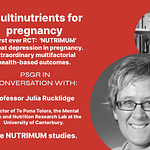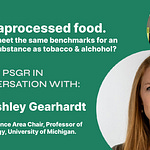Dr Glen Davies, Taupō, New Zealand:
I was pretty much a standard general practitioner. I don’t think I was special in any way. As so many of my colleagues did, we were seeing more and more of these chronic health conditions, more and more obesity, more and more cancers and more and more heart disease and we really didn’t seem to have any answers to it. It was perplexing. … I viewed diabetes as a chronic, progressive condition which would eventually lead to insulin injections, limb amputation, to dialysis, to strokes, to heart attacks. I saw all this happening before my eyes.
In about 2018 there were a series of events. I listened to Professor Grant Schofield who is an author of the What the Fat series of books, talk at a GP conference. … and diabetes was reversable. In fairness it was such a new concept that I was a bit skeptical. At the same conference a bariatric surgeon was speaking and she was saying diabetes was reversable with bariatric surgery. Then in December 2017 there was a paper which showed that a very low calorie diet reversed diabetes. … I had these 3 experiences when I said that ‘wow’ is it actually possible?
Then a fourth event.
A patient of mine called Wayne walked into my room between patients and he told me that I was ‘bloody useless - why don’t I read something?’ He dropped 6 books on my desk & he told me to read them. Which I did. … It was like that penny drop moment. Diabetes is reversable. The reason we haven’t been reversing it is that we haven’t known how. Now we have this new tool that allows us to reverse diabetes & obesity & all these chronic health conditions. That became my passion.’
Dr Glen Davies (ReversalNZ, Taupō, New Zealand) discusses his experiences, working with people and communities to reverse Type 2 diabetes. In 2021 Dr Davies was awarded New Zealand, General Practitioner of the Year, at the New Zealand Primary Healthcare Awards for his work in this field.
This fascinating discussion looks at the drivers that led to Glen’s shift in professional focus. This includes a key patient urging that Glen looked into keto, which then led to Glen researching the scientific evidence, and the experiences of other doctors.
Glen’s shift to focussing on reversing T2 diabetes with ketogenic dietary protocols, has been rapid. It's not just Glen - community groups meet to discuss their own dietary transition, and patients are supported by health coaches.
This talk will appeal to medical doctors and non-medical-doctors alike. The YouTube version shows all the references. Dr Davies success has arisen from a multi-pronged approach, supporting the individual, helping them understand the science, and understanding that change happens differently for all patients/clients.
The community working/information groups have been a major force for change. The Reverse Type 2 Diabetes Taupō (RT2DT) group works to support community-driven lifestyle and dietary change to nourishing whole unprocessed foods and natural fats; and away from refined/processed carbohydrates, industrial seed oils and sugar.
Glen can be found at ReversalNZ.co.nz and on YouTube Glen Davies / @drglendavies
Dr Davies was interviewed by JR Bruning of PSGR.org.nz, October 2022.
For the video version go to https://www.youtube.com/@PSGRNZ
If you are based in New Zealand please consider joining PSGR.org.nz and supporting us. PSGR is a registered charity.















Share this post